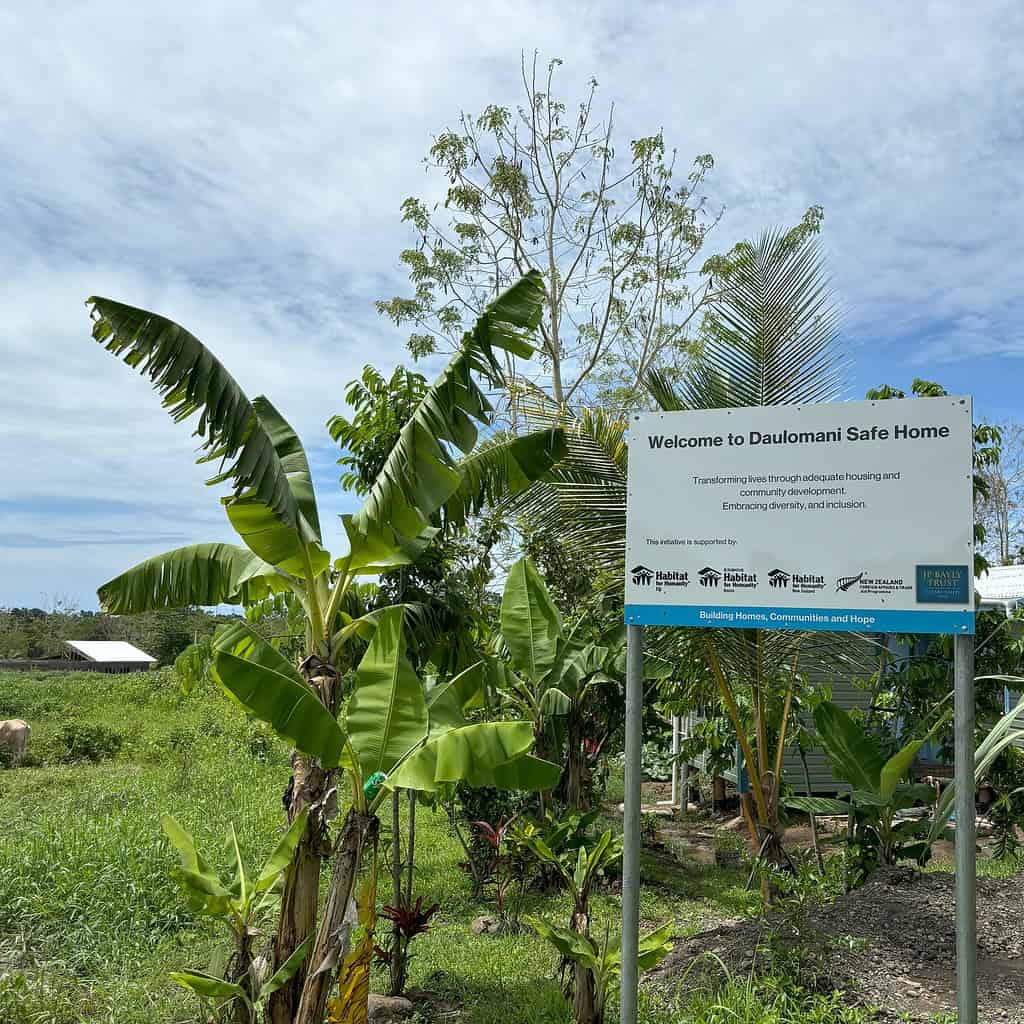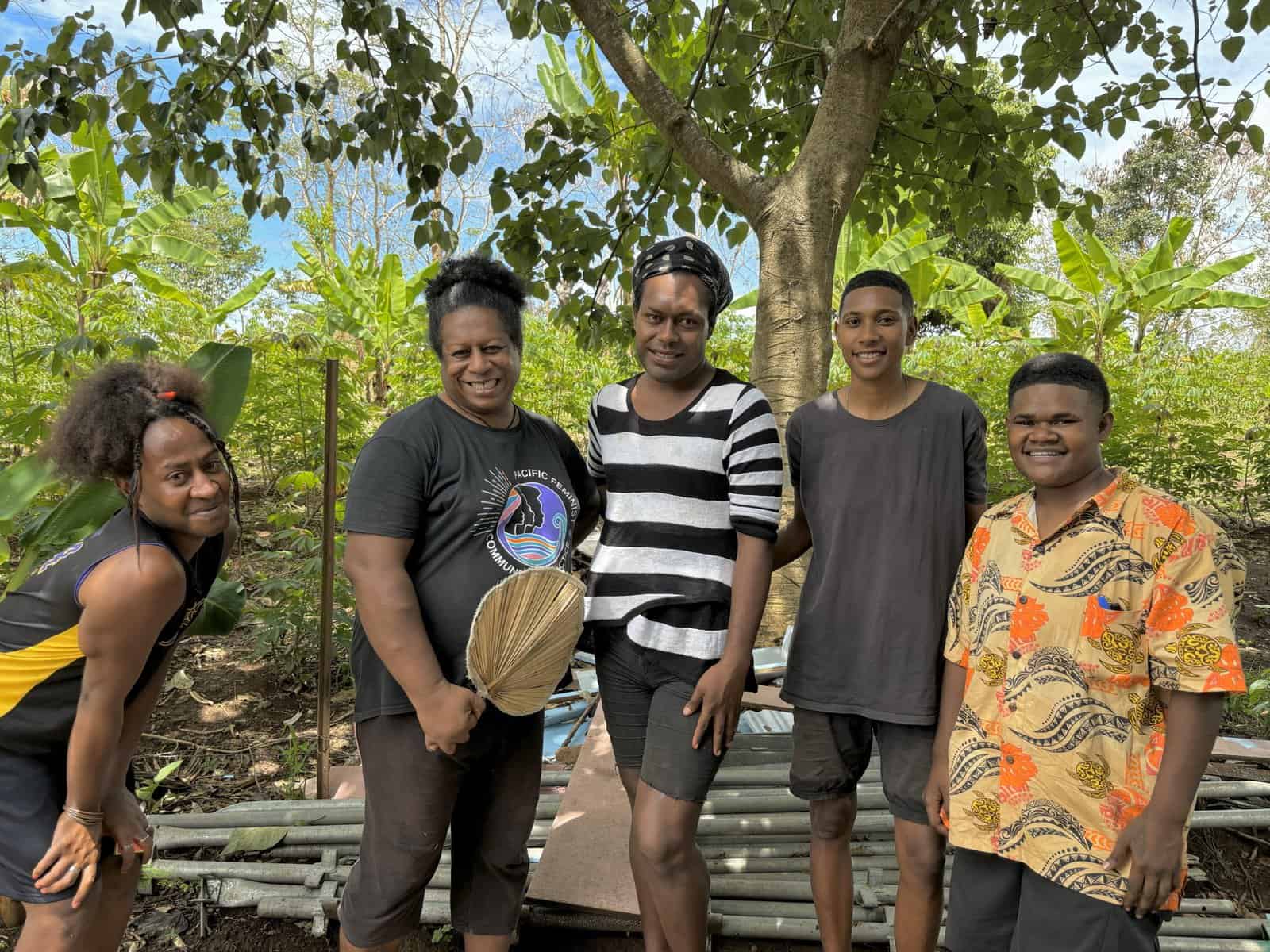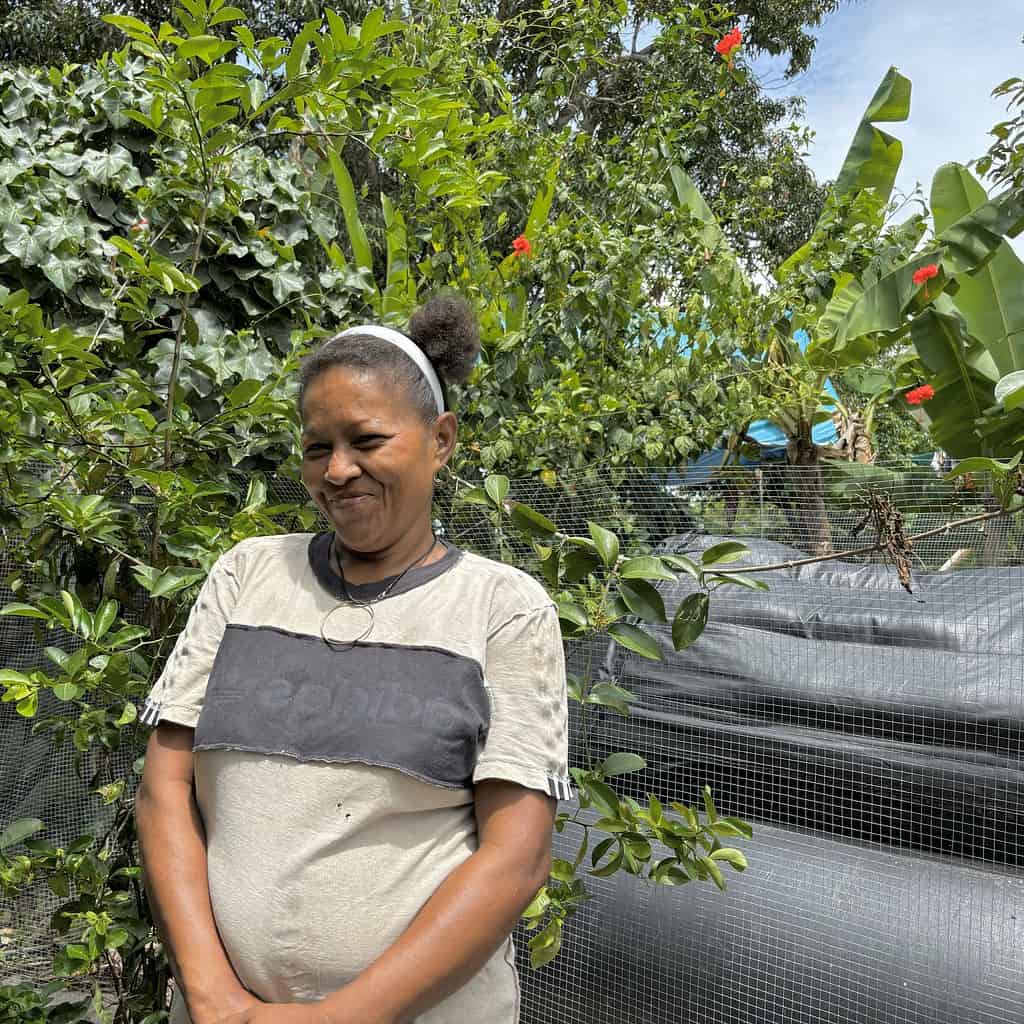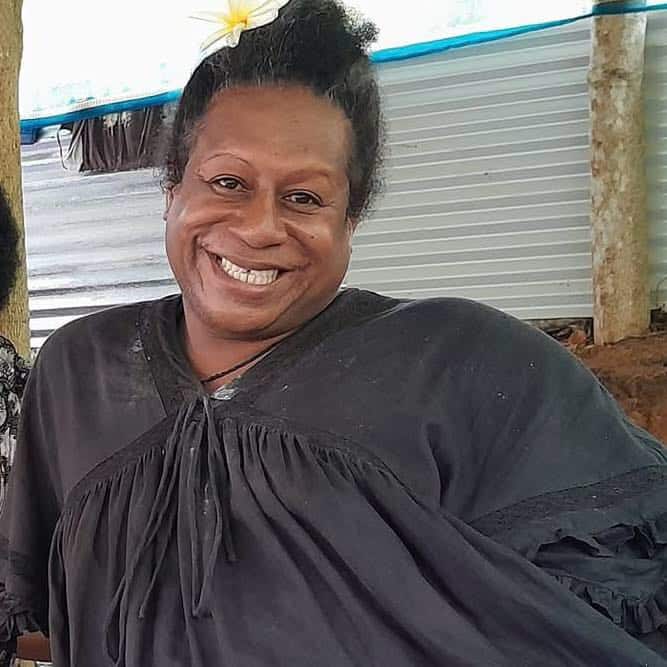“At Daulomani Safe Home, we’re fighting not just the climate but society’s prejudice,” says founder Edwina Biyau, a trans advocate and survivor of homelessness.
As Fiji faces the intensifying effects of climate change, vulnerable communities—especially LGBTIQIA+* individuals, trans sex workers, and people with disabilities—are being left behind in disaster preparedness and recovery efforts.
Daulomani Safe Home, an informal homeless shelter in Tabuka, Lautoka, provides refuge to those facing systemic exclusion.
However its efforts are hampered by a lack of resources, highlighting a critical gap in Fiji’s climate resilience planning.
Founded in 2020, the shelter provides refuge for individuals who experience systemic exclusion from society, including women, people with disabilities, survivors of violence, and members of the LGBTQI+ community.
“Climate change has worsened everything for us,” Biyau shared.
“Floods, cyclones, they strip away what little we have and leave us fighting not just nature but society’s prejudice.”
Fiji is on the front line of the climate crisis. Rising sea levels, intensifying cyclones, and unpredictable weather patterns are daily realities for its citizens.
However, for LGBTIQ+ individuals and those with disabilities, the impacts of these disasters extend far beyond environmental destruction.
Evacuation centres, for instance, are often unsafe or outright inaccessible for trans individuals.
That has been Biyau’s personal experience.
She began living on the streets at 13 years of age.
“I had to survive on my own and find strength to keep going, she said.
“Whenever there was heavy rainfall or a cyclone, I would find space in some of the empty buildings in town instead of shelters. When a cyclone hits, many of us avoid shelters altogether because the humiliation and bullying are unbearable. We end up staying in dangerous conditions instead,” she explained.

These barriers are not just limited to LGBTIQ+ communities. For people living with a disability, infrastructure deficiencies—such as the lack of wheelchair-accessible evacuation routes—can make fleeing disasters nearly impossible.
“Imagine being unable to flee rising waters because there’s no ramp or wheelchair access,” Biyau shares.
“I’ve seen disabled friends stranded during floods, waiting for help that arrives too late.”
Amid these challenges, Daulomani Safe Home operates as a critical support network, accommodating up to 70 residents at a time.
Yet, its efforts are constrained by a lack of resources. Government food rations, for example, are designed for households of four to five people—insufficient for the shelter’s needs.
“Government aid tends to follow a one-size-fits-all model,” Biyau claimed.
“But the ration is not enough, you know? Our community doesn’t fit into neat boxes.
“The packages they distribute feed homes of 4 or 5. But we have 60 to 70 people to feed. So, one food ration is not enough, along with water and a first aid kit.”
Water access is similarly precarious, with the home relying on rainwater collection and occasional truck deliveries.
“Our mission is simple: dignity and survival,” Biyau said. “But the needs are overwhelming, and we’re stretched thin.”

For trans sex workers, who already face societal stigma and limited economic opportunities, climate change has amplified their struggles.
Maya Foster, 28, a transgender sex worker, outlines three primary areas of vulnerability: “Climate change, especially for me, it affected my gender identity as a trans person and compromised our safe spaces and our agriculture,” she explains.
Exclusion from government relief programs adds another layer of harm. Fiji’s criminalisation of homosexuality and sex work discourages trans sex workers from seeking aid, fearing discrimination or legal repercussions.
“When cyclones destroy homes and livelihoods, we lose everything,” Foster says.
“Many of us turn to sex work because it’s the only option left, but even that becomes harder when clients are struggling too. And let’s not even start on the abuse and exploitation that come with it.”
The link between homelessness and climate displacement is stark. For many trans people, family rejection forces them onto the streets long before a cyclone strikes.
“If your family has disowned you, where do you go during cyclones and natural disasters?” Foster asks.
“A disabled person trying to evacuate during a cyclone has very different needs from a trans woman who has just lost their home and livelihood. Evacuation shelters don’t want us. Daulomani is important—it’s one of the few places we’re treated like humans.”
Many advocates have stressed the urgency of intersectional approaches to climate resilience planning.
In June 2024, Saimone Tuni, Chair of the Rainbow Pride Foundation, explained that the lack of inclusion in climate discussions reinforces a feeling of alienation.
“In Fiji, there is a lot of pushback on this issue,” he told United Nations Population Funds (UNFPA).
“When it comes to evacuation, when it comes to assistance, anything that is related to climate change, our people are left out because of their identity, their sexual orientation, their perceived gender expression.”
For Biyau, inclusive policies must address the unique needs of marginalised groups, ensuring access to safe shelters, resources, and disaster management information.
Other basic needs, such as water, are also compromised. The community relies primarily on rainwater collection and occasional water truck deliveries.
However the community’s ability to store water is limited, and during rainy weather it can be undrinkable and unsafe to bathe in.
“Climate change doesn’t discriminate, but people do,” Biyau emphasised. “We need policies that recognise our humanity and our right to survive.”
Despite these challenges, the individuals at Daulomani and other residents demonstrate remarkable resilience.
“We’re not just sitting around waiting for help,” says Biyau.
“We grow our own food, we run support groups, and we advocate for our rights. But the reality is, we can’t do it alone. We need the government, CSOs, and other organisations’ support.”
Understanding the need for adequate housing, Habitat for Humanity Fiji stepped in to build two suitable homes for the residents, assisted by a team of volunteers.
But agricultural disruption further compounds their economic vulnerability. The shelter also relies on farming as their source of food and income.
Ulamila Buatibi, a 44-year-old Daulomani resident describes significant changes in the environment and farming.
“I like to bathe in the river nearby when it’s hot. However, the river has been drying up recently, which is quite distressing. Climate change is real, and it needs to be taken seriously.”

The human rights implications are substantial. Josifini Lee, another trans sex worker, articulates these as violations of fundamental rights: “We’re talking about the right to food, the right to sanitation, the right to counselling, and the right to personal security.”
“It’s not just about building a ramp or adding another toilet. It’s about listening to us, involving us in decision-making, and treating us with the same respect as everyone else,” she said.
Grassroots organisations like the Rainbow Pride Foundation and Diverse Voices and Action (DIVA) for Equality are at the forefront of advocacy efforts.
Their work highlights the systemic failures that leave LGBTIQ+ communities vulnerable and calls for government accountability.
Noelene Nabulivou, executive director for Diverse Voices and Action (DIVA) for Equality, echoed Lee’s concerns.
“We cannot ignore the rise in poverty and unemployment among LGBTQIA+ individuals,” Nabulivou told Islands Business.
“It’s imperative that we come together—governments, academics, activists, and every stakeholder—to address these specific challenges.”
Marginalised groups face systemic barriers to accessing disaster relief, healthcare, and counselling services.
“You may think what is the link between gender, sexuality, climate change?”, said Nabulivou during a short documentary with 108 films on Climate and Gender Justice.
“We are fighting and struggling individually, and with broader and social movements to change these systems. Justice is owed to us all now. I’m afraid for us and our planet if we don’t make huge and urgent changes now.”
Survivors with solutions
The Daulomani Safe Home residents actively contribute to the shelter’s upkeep, from farming for sustenance to running support groups. Still, the community’s strength alone is insufficient to bridge the systemic gaps.
“We’re survivors with solutions,” Biyau said. “But we need platforms and allies to amplify our voices.”
Biyau identifies mental health as another crucial area of focus that is often overlooked in disaster response.
“Climate change takes a toll on your mind as much as your body,” Biyau explains.
“Losing your home, your livelihood, your sense of security, it’s sad. That’s why counselling is important.”
Biyau is determined to keep fighting. “We’ve faced floods, cyclones, and rejection, but we’re still here,” she says.
“That tells you something about our strength. But strength isn’t enough. We need action—real, tangible change that recognises our humanity.”
As climate crises intensify, Fiji’s marginalised communities demand not just recognition but tangible action.
Biyau expressed those inclusive policies, adequate resources, and accessible infrastructure are essential to ensure no one is left behind.
“This isn’t just a climate issue; it’s a human rights issue,” Biyau concluded. “Everyone deserves a safe space, no matter who they are or what they’ve been through.”
*Lesbian, Gay, Bisexual, Transgender, Queer/Questioning, Intersex, Asexual +
